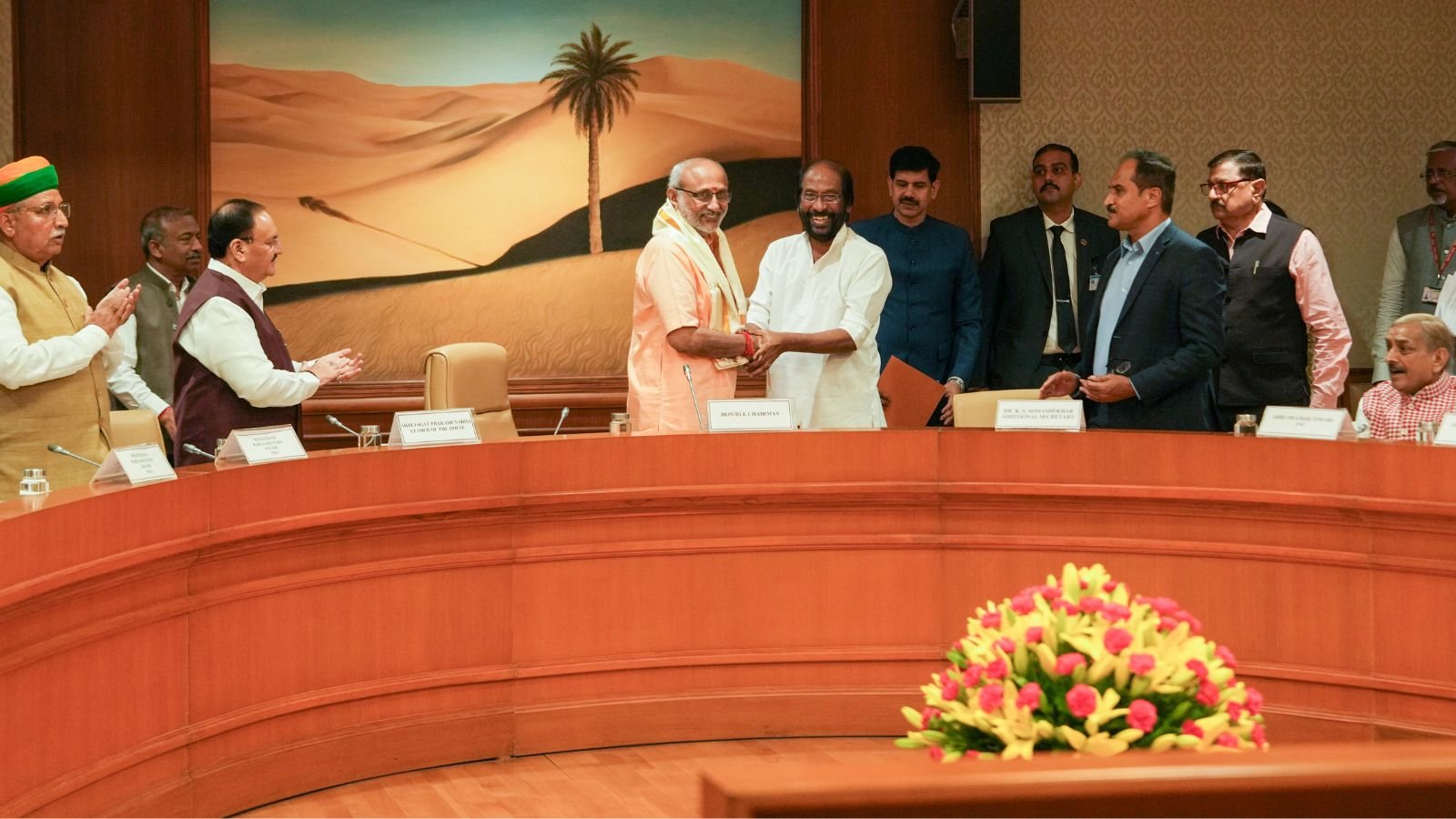The Constitution of India and the rules book of the Rajya Sabha, “serve as the guiding framework — the Lakshman Rekha — for parliamentary discourse”, Vice-President C P Radhakrishnan told floor leaders of the Rajya Sabha from across parties during his first official meeting on Tuesday.
The meeting, which was held almost a month after the V-P assumed office, was attended by Leader of the House in Rajya Sabha JP Nadda, Congress’s Pramod Tewari and Jairam Ramesh, Samajwadi Party’s Ram Gopal Yadav, TMC’s Sagarika Ghose and CPI(M)’s John Brittas among others.
In his opening statement, Radhakrishnan emphasised the importance of ensuring that the Upper House functions with the dignity, discipline, and decorum it deserves. He said that dialogue, deliberation, debate, and discussion are the basic tenets of a parliamentary democracy.
Story continues below this ad
He mentioned Zero Hour, Special Mentions, and Question Hour as “vital instruments that allow Members to bring forth matters of urgent public importance”.
Speaking during the meeting, JP Nadda stressed on “following the high traditions of Parliamentary Procedure while running the House” and extended all possible support at his command to ensure smooth conduct of proceedings”.
The floor leaders, while extending their full cooperation in running the House, requested the Chairman to give adequate opportunity to the Opposition parties to raise their voices through various Parliamentary devices such as Zero Hour, Question Hour, Private Members’ Business (PMB), Short Duration Discussions (SDD), Calling Attention Notices (CAN), etc.
Congress chief whip Jairam Ramesh raised the demand that one calling attention and one short duration be allowed on issues raised by the Opposition.
Story continues below this ad
CPI-M’s John Brittas said while the government has its way, it should at least allow the Opposition to raise their issues. Brittas also raised the issue of a large number of questions being disallowed and not answered properly. The Chairman assured that he would look into the issues raised by the parties.



